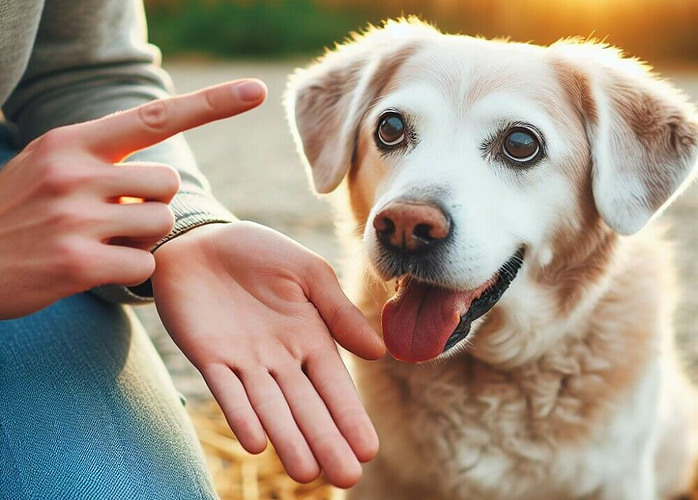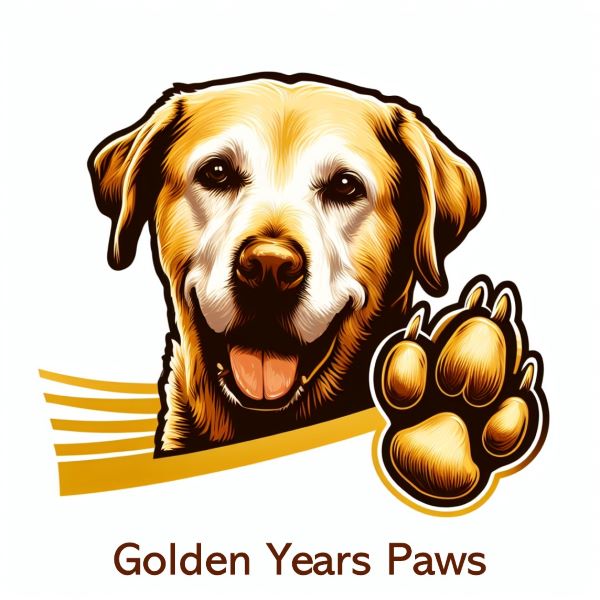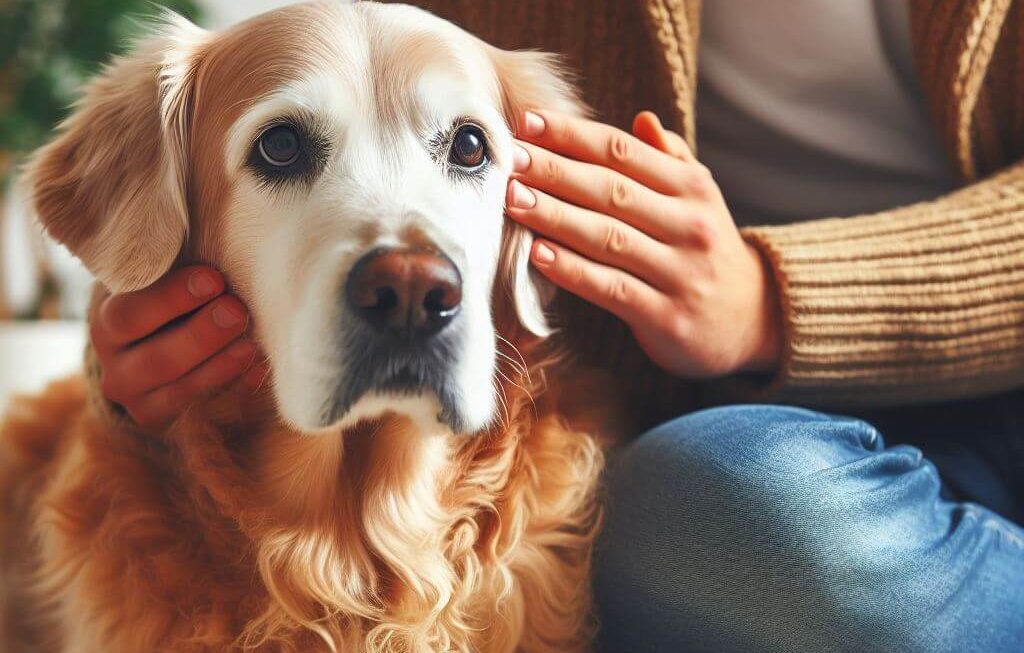I’m going to share with you a common but often-overlooked issue that can affect our aging canine companions: hearing loss. It can creep in quietly, and before you know it, you may find your faithful friend less responsive to your call. It’s not merely about them not hearing us; it’s also about how it alters their entire world.
You might find it surprising, but hearing loss in dogs is similar to that in humans. Just as some people might lose their ability to hear high frequencies first, dogs can experience a similar pattern of decline. It starts with not catching the subtle sounds, like a quiet voice, and can eventually progress to missing louder signals, like the jingle of keys.
Take Rio, my 12-year-old Labrador, as a vivid example. About a year ago, I noticed something odd; he didn’t perk up when I spoke softly. Over time, he stopped hearing the key turn in the key box, which once was his cue to excitedly wait by the door. Now, I can walk in, potter about for several minutes, and there he is, still dozing peacefully, unaware of my presence. Gone are the days when the slightest clink of plates for lunch got his immediate attention. This decline isn’t just an inconvenience; sometimes it’s downright dangerous, especially because Rio loves his off-leash walks, and a passing car can go unnoticed by his fading ears.
If you’re nodding along, or thinking of your senior dog, don’t worry too much about it right now. Recognizing the signs early can make a huge difference. It means you can adjust your approach to communication, create a supportive environment, and continue the bond you’ve always enjoyed with your four-legged friend. But, before we move on to modify our homes and habits to better suit our aging dogs, it’s crucial to differentiate between the usual signs of aging and potential health issues. A vet should evaluate persistent or dramatic changes in hearing to rule out treatable conditions or provide specific care.
Adapting Your Home for a Hard-of-Hearing Senior Dog
If you’ve got a senior dog like Rio, who’s starting to show signs of hearing loss, making some adjustments at home can make a huge difference. Dealing with this isn’t just about ensuring he’s comfortable; it’s about keeping him safe too.
You want to be sure that your dog can still recognize your presence even if they can’t hear you coming anymore. For Rio, it used to be the sound of a key in the key box that alerted him. Now, you may need to consider other ways to announce your arrival, like turning on a certain light or perhaps even using floor vibrations by tapping your foot.
Mealtime has probably changed as well. Before, the clink of plates might have been enough to bring Rio running. But now? It might take something extra to get his attention. Try creating a visual signal, like a distinctive hand wave, or gently waking him with a gentle pat.
Then there’s the matter of home safety. A dog that doesn’t hear well might not notice when something dangerous is happening. You can help protect Rio by eliminating potential hazards he might not be able to hear—like ensuring he isn’t too close to the stove when it’s on, in case he doesn’t hear the food sizzling or the timer going off.
Throughout all this, the key is patience and creativity. Every dog is different, and what works for one might not work for another. So, keep an eye on Rio and see what helps him the most, and remember to adjust your approach as needed over time. Dogs like Rio may have lost one sense, but their other senses can help make up for it, and your thoughtfulness in adapting your home can go a long way.

Effective Communication Techniques
I’m going to share something with you: since my lab Rio began losing his hearing, we’ve had to get creative to stay connected. It’s vital to establish new methods of communication when traditional verbal commands no longer make the cut.
First off, visual signals and gestures become your new best friends. Dogs are really good at picking up on body language. Try using hand signals instead of verbal commands, and be consistent with them. For starters, a raised hand can mean ‘stop,’ while pointing to the ground can mean ‘sit.’ Remember, make them clear and distinct, so there’s no chance of confusing one for another.
Creating visual signals, like a distinctive hand wave, can be enhanced with the right tools. This handy flashlight or laser pointer can be useful for catching your dog’s attention from a distance.
Now, the power of touch can’t be overstated. A gentle touch can let your dog know where you are and what you want them to do. Incorporating touch into daily routines creates a touch language that your dog will quickly come to understand. For instance, a touch on the back might be your way of saying ‘stay,’ while a touch under the chin could mean ‘attention.’
Don’t worry too much about your dog’s ability to relearn. You can always adjust your approach down the road, but what’s amazing about senior dogs like Rio is their capacity to adapt to new training, even with something as challenging as hearing loss. Just be sure to reward your dog with treats, so they know they’re on the right track.
Consistency and patience are key. It’s not just about teaching new signals; it’s also about helping your dog feel secure and understood. You might notice a sense of relief in your dog once they realize they can still understand what you’re asking of them, even without hearing.
Let’s not forget: your first attempt doesn’t need to be your last. You’ll likely need to refine your signals and methods as you go, and that’s perfectly okay. Choose something that resonates with you and your dog, and build from there.
Outdoor Safety and Awareness for Dogs with Hearing Loss
I’m going to explore the vital topic of keeping your senior dog safe outdoors, especially when hearing loss is in the picture. A lot is happening very quickly in the outside world, and dogs like my Rio, who once relied on their keen sense of hearing, can now be at increased risk.
Now, outdoor safety starts with rethinking the way you walk your dog. Without the ability to hear cars or other dangers, an off-leash walk isn’t just risky—it’s a gamble with your furry friend’s well-being. I recommend transitioning to a secure and comfortable harness and leash combo for those daily strolls.
That’s going to include teaching your dog new cues. Hand signals can be lifesavers, literally. A raised hand for ‘stop’ or a pointed finger for ‘this way’ are straightforward and can be recognized from a distance. Remember, consistency is your best friend here; practice these regularly to ensure they become second nature to both of you.

You’re also going to find out about special collars and tags that alert others to your dog’s hearing impairment. This isn’t just about safety for your dog; it’s also about making others aware of your dog’s needs, which can prevent mishaps during those encounters with friendly strangers and their pets.
As tough as it might be to acknowledge, hearing loss means you need to stay vigilant. Even in familiar places, always watch for signs of confusion or disorientation in your dog. This includes companies such as local parks and your neighborhood streets, where unexpected hazards can appear.
As we wrap up, remember that your senior dog’s journey through hearing loss is not a solo venture. You’re the guide, the protector, and the constant in a world that’s become a bit quieter for them. Adjust your approach as needed and keep learning and adapting. Choose strategies that resonate with both you and your dog, and watch as you both find new ways to enjoy the great outdoors together.
So my question to you today is, what steps will you take to ensure your hearing-impaired dog stays safe and happy? There’s a lot of opportunity in this challenge to deepen the bond you share with your faithful companion. I really hope that you find the balance between safety and enjoyment in every walk and adventure you undertake with your senior dog. Thanks for joining me on this journey, and I’d love to hear your feedback or experiences—leave your comments below!
Warmest Wags,
Morena
Founder, GoldenYearsPaws.com

